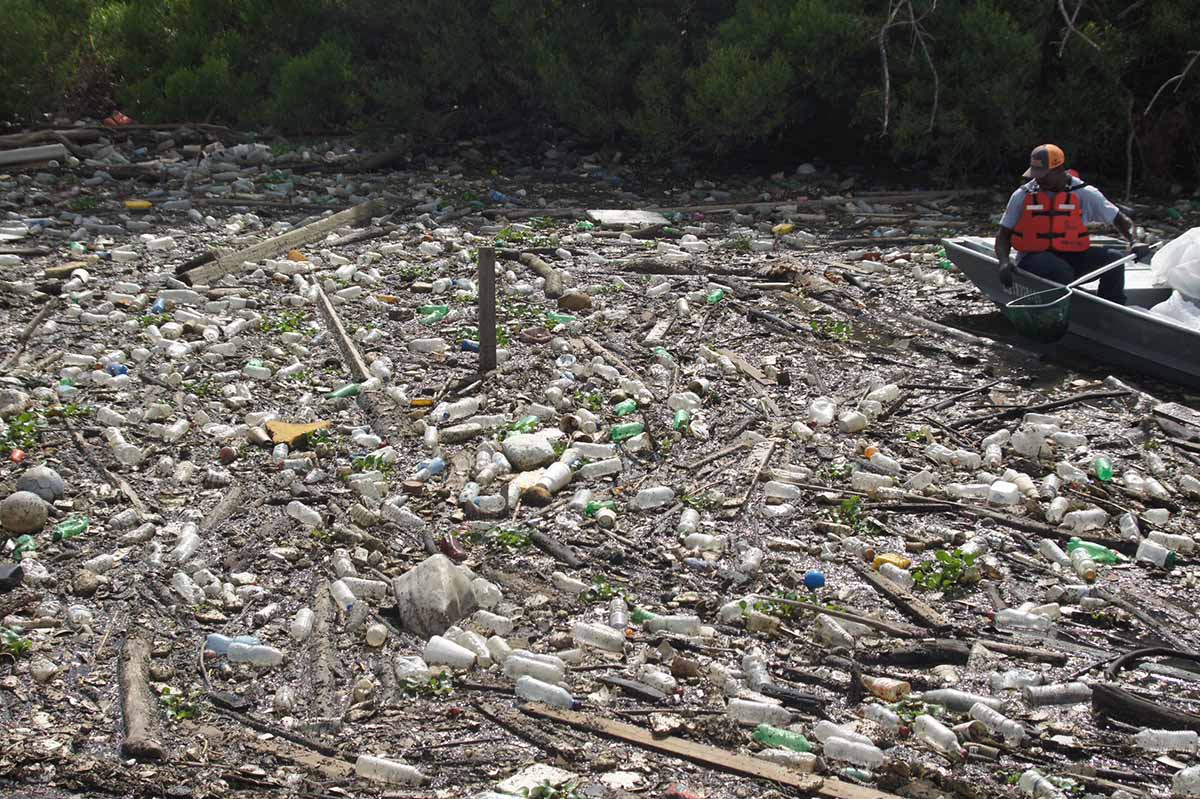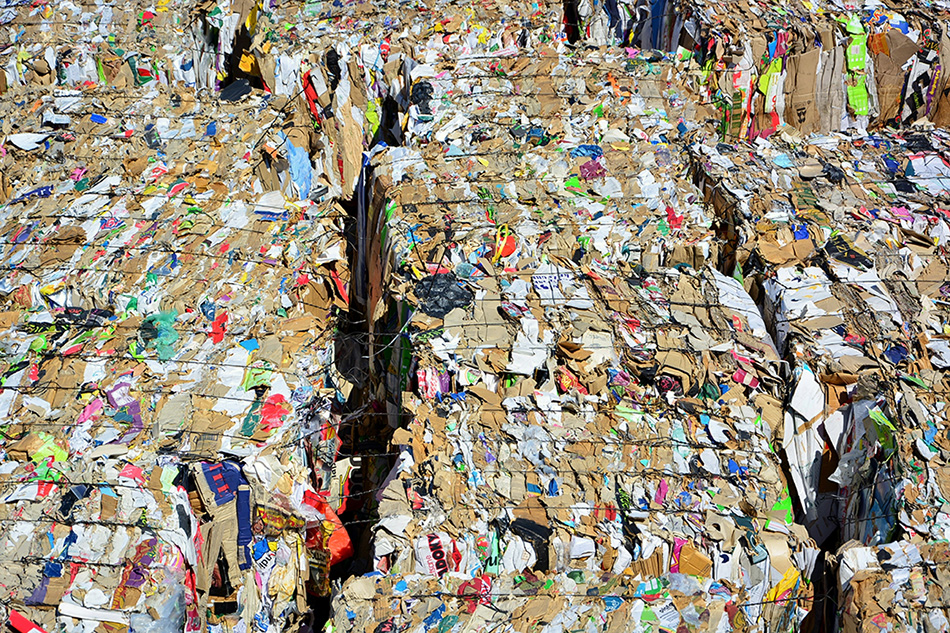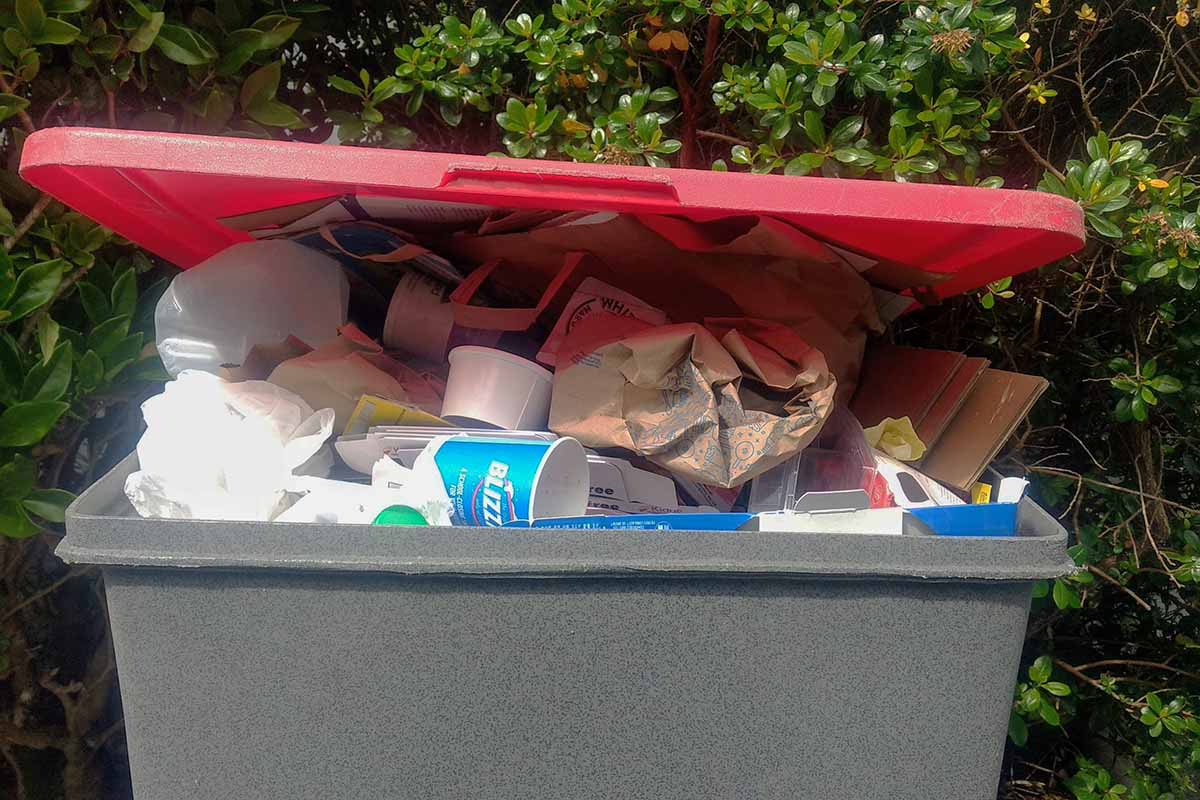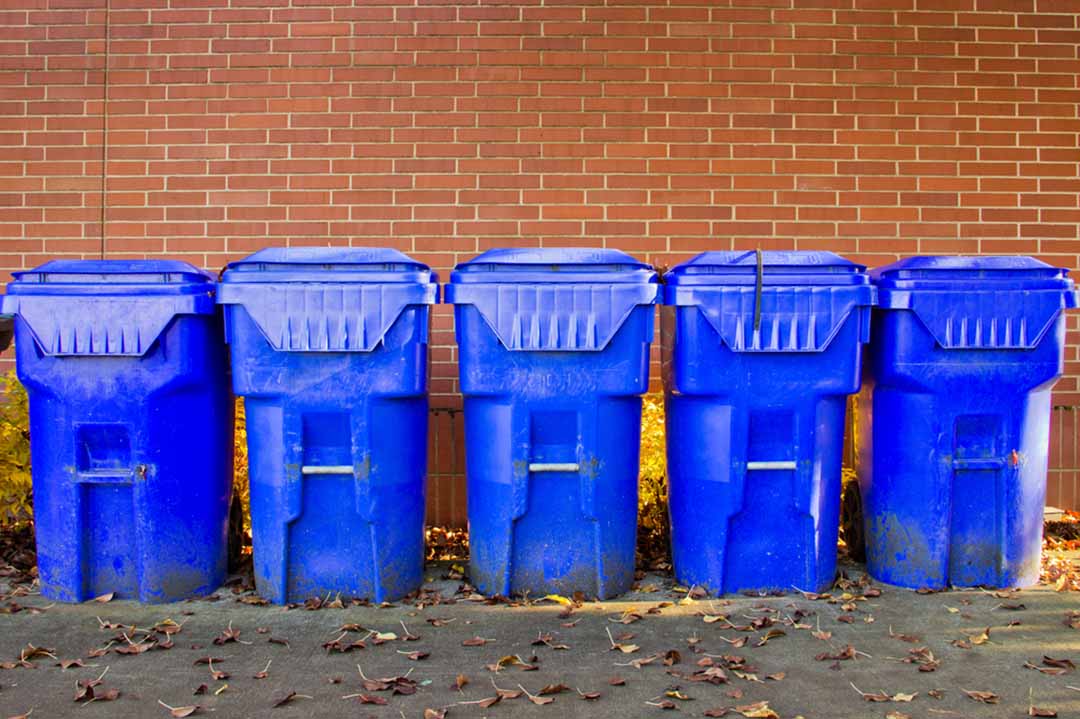

Crews remove plastic litter from Hunting Bayou in the Houston area. | Courtesy of Texans for Clean Water
Legislation being considered in Texas would create a program injecting tens of millions of dollars into the recycling system each year while also paying consumers to return plastic bottles, cups and film.

OCC baled for recycling. | Sergej57/Shutterstock
Recycled paper mill operator DS Smith predicts strong growth in corrugated packaging, long after the initial impacts of the COVID-19 pandemic have passed, the company’s head of recycling said.

The report from SWANA delves into how poor recycling behaviors develop and why they persist. | Scott Beck / Resource Recycling Inc.
Education campaigns may improve curbside recycling practices for residents who produce average or low amounts of contamination, but they may not impact the worst offenders, according to new research.

Unilever uses about 118,000 metric tons of plastic packaging in North America each year, half of which is post-consumer resin. | Peter Bueno/Shutterstock
Unilever North America will invest $15 million in the Closed Loop Partners Leadership Fund, a private equity platform that helps grow companies in the recycling value chain.

The recycling industry has become increasingly consolidated in recent years following major corporate acquisitions. | Stephen Griffith/Shutterstock
